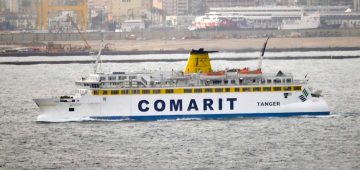Concerns are being raised about the practices of the shipbreaking industry on the beaches of India, Pakistan and Bangladesh.
Shipbreakers in these countries operate under dangerous and polluting conditions. Workers labour on tidal sands to cut ships by hand, breathe in toxic fumes and asbestos, and fall victim to explosions and accidental crushing. According to the International Federation for Human rights, up to 20% of the shipbreaking workforce in Bangladesh are children under the age of 15. Recently there was an accident on the notorious shipbreaking beach at Chittagong that killed 4 workers. 5 workers were killed there in July, adding up to a reported 9 deaths in less than two months, and over 200 deaths documented over the past 5 years.
The US shipowner Matson has issued a statement: “Because of concerns with recycling practices in South Asia, Matson has decided to expressly prohibit recycling of its vessels in this region going forward.”
The statement is reflective of a growing consensus of shipowners. Already in Europe the Norwegian Shipowners association and its 160 members recently voted to prohibit Norwegian-owned ships to be scrapped on South Asian beaches. This move follows other large foreign shipowners that have also adopted “off-the-beach” ship recycling policies, including Norwegian shipowners Grieg, Wilhelmsen and Høegh, along with German Hapag-Lloyd, Danish Maersk Lines, Royal Dutch Boskalis, Canadian CSL Group, and Singaporean China Navigation Company.

The U.S. government has likewise maintained a long-standing policy that requires its own ships to be recycled domestically and off the beaches. Ironically this stands in stark contrast to the fact that the U.S. government allows private shipowners to legally reflag their vessels for disposal on foreign shipbreaking beaches.
Unfortunately, despite Matson’s good intentions, one of their vessels is currently on its way to India for recycling.
The 42 year old Horizon Trader was delivered to the all Star Metals ship recycling facility in Brownsville, Texas in January. However, instead of being recycled in accordance with U.S. environmental health and safety laws, creating local jobs, the vessel was photographed on 2nd September being towed out of Brownsville with fresh paint on the ship’s hull masking her true identity. Whereas there would seem to nothing that they can do about this vessel, it is likely that there will be significantly fewer ships arriving on those beaches in the future.
Unfortunately, one factor that doesn’t seem to have been considered is the likely unemployment that will be caused in those parts of the world where many are starving already. The human cost could be catastrophic.

Finally, I would like to wish all our readers a very Happy Christmas.



Comments
Sorry, comments are closed for this item